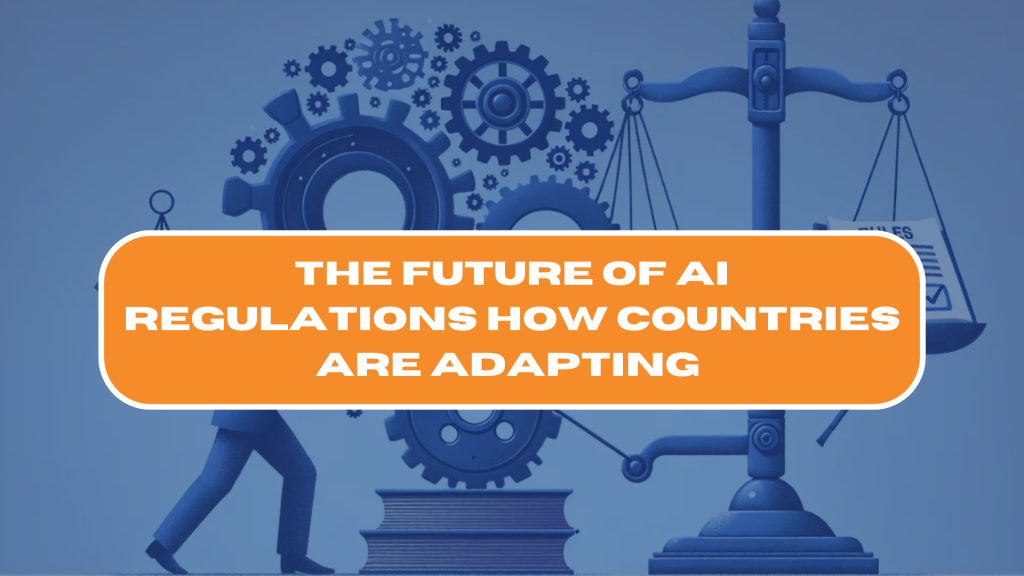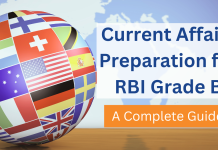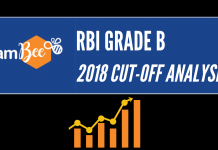Artificial Intelligence (AI) is changing our world at a simple breakneck pace. From autonomous cars to chatbots and medical diagnosis codes, AI is increasingly becoming part of our existence. And with such ability, however, comes such duty. Governments all around the world are putting regulations on AI so that AI is being utilized safely, ethically, and fairly. In this blog, we are discussing the future of AI regulation: how countries adapt and what 2025 promises in the form of AI.
With AI currently growing, regulation around proper usage becomes increasingly necessary; thus, with this growth comes the need for policymakers to balance innovation with ethics so that AI can be a force for good. In the future, AI regulation will be transparency, fairness, and accountability-based. Regulations worldwide by 2025 will decide how AI will be applied in healthcare, finances, and security, which will make AI more secure and reliable for all countries.

Why Do We Need Regulations on AI?
We need regulations for AI to protect users, promote fair decision-making, and prevent misuse of AI technology. The following are some of the reasons why regulations are needed:
- Data Privacy: AI systems collect and process vast amounts of data. Regulations provide for the protection of personal data.
- Bias and Fairness: AI systems can get biased if they are trained on biased data. Regulations ensure fairness and transparency.
- Security Risks: AI can be utilized for cyberattacks or propaganda. Laws ensure that such risks are under control.
- Responsibility: If AI makes mistakes, someone must be held responsible.
- Economic Consequences: AI is transforming work and sectors. Regulations can ensure that such transformations are controlled.
Future of AI Regulation
Governments and institutions worldwide are creating AI legislation and laws. In 2025, regulation of AI will be about the following themes:
- Transparency and Explainability: AI systems will be explainable since users and regulators will expect it.
- Data Protection: Enforced privacy laws will be in place to safeguard individual data.
- Ethical AI Development: Ethics would have to be followed by AI developers.
- Job Protection and Economic Policies: Governments will enact policies for job loss management, which is caused by AI-driven automation.
- AI in Sensitive Industries: Finance and healthcare will each have stringent AI laws to avoid harm.
How Various Countries Are Redesigning
Various countries are taking varied approaches to regulating AI. Let us take some of the largest economies of the world and their AI policy.
United States
The United States is soft in its approach to AI regulations. The government encourages AI innovation along with responsible development of AI. The main developments are:
- The National AI Initiative Act encourages AI research and development.
- White House AI Bill of Rights enshrines moral uses of AI.
- Regulation of AI is state-regulated, and California has been leading the way on AI privacy legislation.
European Union (EU)
The EU is the global leader in AI regulation. Its AI Act is one of the most robust AI legislation in the world. The key features are:
- AI systems are distinguished by categories of risk (low risk, medium risk, high risk, and unacceptable risk).
- High-risk AI systems are to be regulated strictly prior to deployment.
- Surveillance and social scoring AI on large scales are prohibited.
China
China is investing in regulation as well as in AI. China has enacted:
- AI Ethics Guidelines to ensure responsible use of AI.
- Algorithm Transparency Rules mandating companies to reveal how their AI functions.
- Social Credit AI Restrictions to avoid discriminatory AI-based social scores.
India
India is progressing on AI with responsible AI development. Key steps are:
- National AI Strategy (NITI Aayog) for responsible application of AI.
- Data Protection Bill for regulation of AI-driven data gathering.
- AI in Governance for better public services with responsibility.
United Kingdom
The UK has taken a balanced path, promoting AI growth with regulation. Key recent steps are:
- AI Governance Framework to control the use of AI.
- AI Safety Institutes to study AI risks.
- Public consultations on AI transparency and accountability.
AI Regulations: Comparative International Analysis
The following is a comparison of AI regulations in various countries presented in the form of a table:
| Country | Key AI Regulations | Topic Areas |
| United States | National AI Initiative Act, AI Bill of Rights | Innovation, Ethics, Privacy |
| European Union | AI Act | Risk-based AI rules |
| China | AI Ethics Guidelines, Algorithm Transparency | Development and management of AI |
| India | National AI Strategy, Data Protection Bill | Development and ethical AI |
| United Kingdom | AI Governance Framework, AI Safety Institutes | Balanced AI approach |
Challenges of Implementing AI Regulations
Even though AI regulations are needed, it is difficult to implement them. Some of the challenges are:
- International Differences: Every country has different AI laws, and hence it is difficult to collaborate on an international scale.
- Rapid AI Development: AI technology is developing too rapidly, and hence it is difficult for the laws to keep up.
- Balancing Control with Innovation: The rules must not retard AI development but must be safe.
- Ethical Issues: Ethical AI is hard to define and differs by industry and culture.
What AI in 2025 Might Look Like
As the regulations on AI change, AI in 2025 will be safer, more transparent, and ethical. Here are what we can look forward to:
| Future of AI | Impact of Regulations |
| Impact of Regulations | AI systems will make transparent their decision-making processes. |
| Enhanced Data Privacy | AI businesses will have to comply with stricter data regulations. |
| Adoption of Ethical AI | Ethical AI guidelines will be mandatory for companies. |
| AI in Sensitive Industries | AI used in healthcare, finance, and defense will be governed stringently. |
| Global AI Regulations | Nations may collaborate on the creation of international AI rules. |
Conclusion
Regulations of AI become important with the ongoing improvement of AI technology. Various nations are adopting varying strategies towards ensuring AI is secure, ethical, and useful for society. By 2025, AI regulations will be more robust and will render AI more transparent, equitable, and accountable.
You may get ready for government exams and be updated about AI regulations and others by logging into ixamBee for recent mock tests and courses.
The future of AI is very bright, and with proper regulation, we can make AI beneficial to all in a safe and ethical manner!
At ixamBee, we specialize in providing comprehensive online courses for government exams and online courses for government jobs. Our expertly designed courses for government jobs cater to a wide range of upcoming government exams. Whether you’re preparing for specific courses for government exams or seeking general guidance, ixamBee offers the resources like Beepedia previous year papers, SSC CGL, SSC CHSL, SSC MTS and other mock tests to succeed in exams like RBI Grade B, SEBI Grade A, NABARD Grade A, RRB NTPC, SSC MTS, NIACL Assistant, and more.
Also Read:
Important Full Forms for Competitive Exams: Bank, SSC, Railway, and More
Why Aspirants Fail in Government Exams
Largest Tiger Reserves in India 2025| Top 10 State-Wise & Area-Wise List















